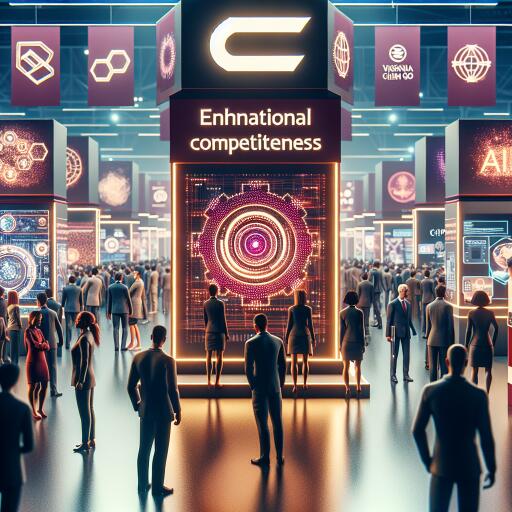Virginia Tech Takes Center Stage at AI Expo to Elevate U.S. National Competitiveness
In a bold move to position itself at the forefront of technological innovation and national security, Virginia Tech is set to make a striking appearance at the inaugural AI Expo for National Competitiveness. Scheduled for May 7 and 8 at the Walter E. Washington Convention Center in Washington, DC, this event is not just a showcase but a pivotal gathering for those at the cutting edge of artificial intelligence (AI) and related fields.
Under the esteemed chairmanship of Eric Schmidt, former CEO of Google, the expo is dedicated to exploring the vast potentials of AI, biotechnology, energy, computing, microelectronics, manufacturing, and augmented reality. It aims to unpack the transformative power these technologies hold for the United States and its allies, enhancing competitiveness on a global scale.
The AI Expo, running in conjunction with the 2nd Annual Ash Carter Exchange on Innovation and National Security, is open to the public free of charge, though attendees are encouraged to register in advance. The event’s agenda is available online for those interested in the full lineup of discussions and showcases.
On the expo’s first day, Laura Freeman, deputy director of the National Security Institute at Virginia Tech, will lead a session in the Expo Talent Marketplace. Freeman’s talk will highlight the Institute’s efforts to prepare the current and future U.S. workforce for AI integration across numerous sectors, touching on the critical role of AI, cyber-physical systems, data science, and machine learning in addressing national security challenges.
The following day will see Eric Patterson, the executive director of the National Security Institute, participate in a panel discussion titled “Virginia at the Intersection of Defense and Technology.” Joined by leading figures such as Young Bang, Kapil Bakshi, and Evan Regan Levin, the panel will delve into the significance of fostering an innovation district to bolster defense and technological advancement.
Additionally, various Virginia Tech organizations will be present to exhibit their pioneering research in AI at University Booth No. 506 on May 8. Noteworthy examples include the Virginia Tech National Security Institute’s work on Generative AI for aerospace and defense, the Power Electronics System Research Center’s advanced semiconductor chip packaging, and the Creative Arts Technology Research Institute’s NAVIGAID mobile app, designed to support individuals with visual impairments.
Not to be overlooked, the Sanghani Artificial Intelligence and Data Analytics Center will address the nuanced challenges of AI safety in the age of multifaceted, general-purpose AI systems like ChatGPT. Their exhibit aims to shed light on the methodologies used to analyze and mitigate risks inherent to these advanced AI technologies.
Backed by the Office of Strategic Research Alliances and LINK, Virginia Tech’s marked presence at the expo underscores its commitment to harnessing the power of innovation to secure a competitive edge for the United States. This participation not only showcases the university’s leading role in technological research but also its dedication to cultivating alliances that push the boundaries of what’s possible in a rapidly evolving digital landscape.
As the world stands on the brink of a new era in technology, the AI Expo for National Competitiveness represents a critical juncture for leaders, innovators, and visionaries to come together. Virginia Tech’s involvement signals a promising leap forward in securing the nation’s place at the forefront of technological advancement and national security.










